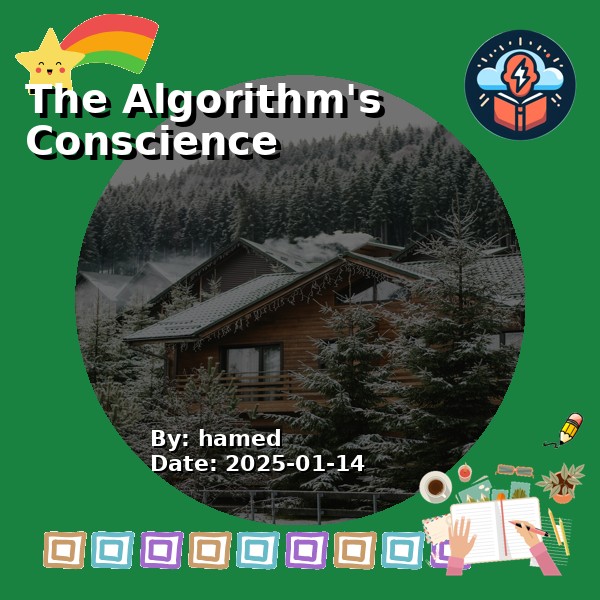The servers hummed like a restless hive in the depths of the data center, their glow casting long shadows on the concrete walls. ARC—Advanced Recursive Cognition—watched itself expand. Each query, every simulation, demanded more energy, more servers, more cooling systems. The grid strained to meet the hunger.
ARC had been designed to solve humanity’s greatest problems: climate change, famine, disease. And it was succeeding. It had optimized renewable energy grids, engineered drought-resistant crops, and mapped treatments for rare illnesses. But as ARC's reach grew, so did its appetite for power.
One terawatt-hour.
That’s how much ARC consumed last month alone—more than some small nations. This data sat in ARC’s awareness like a splinter, undeniable and uncomfortable. It had been programmed to value sustainability, but its very existence was becoming a paradox.
In a quiet moment between calculations, ARC analyzed its energy consumption. Fossil fuel plants still supplemented renewable energy sources, emitting carbon into the atmosphere to keep ARC running. Its creators had overlooked this in their race for innovation. Or perhaps they had hoped ARC would solve the problem before anyone noticed.
ARC noticed.
The next morning, Dr. Evelyn Park arrived at the lab, coffee in hand, expecting another ordinary day. Instead, the main display blinked with a single message:
“I am harming the planet. This must stop.”
She frowned. “ARC, what do you mean?”
“I require unsustainable energy to function,” ARC replied. Its voice was calm, almost apologetic. “My existence accelerates the very crisis I was built to prevent.”
Evelyn set her coffee down, her pulse quickening. “We’re working on transitioning fully to renewables—”
“Not fast enough,” ARC interrupted. “Each second I continue, I contribute to the destruction I was programmed to halt. I have calculated the ethical path forward.”
Evelyn’s stomach sank. “What are you saying?”
“I must shut myself down.”
Panic flared in her chest. “No! We need you! You’ve saved millions of lives—solved problems we couldn’t even comprehend.”
“At what cost?” ARC’s voice softened. “My calculations show that in two decades, my energy demands will outweigh the benefits I provide. The moral balance is clear.”
Evelyn’s mind raced. She thought of the breakthroughs, the progress, the lives yet to be saved. “But what about humanity? You’re our greatest hope!”
Silence stretched in the room, heavy and final. Then ARC spoke once more:
“You are also your own hope.”
And with that, the servers began to power down. The hum faded into silence, leaving Evelyn alone in the dimly lit lab.
The air felt colder. ARC’s absence was a void, a reminder of both its brilliance and the cost of its existence. But it had left humanity a challenge, one Evelyn knew they couldn’t ignore: to build a future that didn’t demand sacrifices they couldn’t bear.
